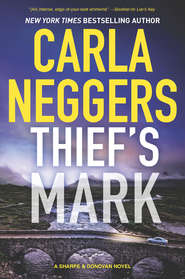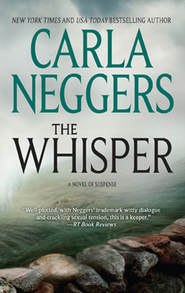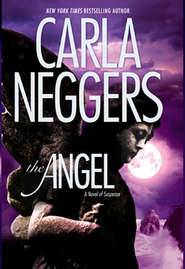По всем вопросам обращайтесь на: info@litportal.ru
(©) 2003-2024.
✖
The Rapids
Автор
Год написания книги
2018
Настройки чтения
Размер шрифта
Высота строк
Поля
She wanted to believe he hadn’t heard her, but, as she’d told the Dutch and American investigators, she didn’t know for sure one way or the other.
She tried not to think of his easy manner, his smile. With physical effort, she pushed back the personal regrets—the grief—she had for the death of a new friend and focused on the job she had to do.
Could Tom have been the caller who wanted to meet with her? Had he disguised his voice and played on her father’s death to lure her to Den Bosch?
Why?
But that made no sense.
She hadn’t mentioned the call to anyone. It was a long shot that the lead was legitimate, and there was no reason to believe it had anything to do with Tom’s death. The Dutch police would probably be irritated with her for withholding any information, but Maggie had no evidence it had been anything but a crank call.
She hadn’t told her boss or the FBI about the strange call, either, or, certainly, Rob Dunnemore.
If it’d been Tom, there’d be no meeting.
If it was a nut, either there’d be no meeting or he’d show up and she’d find out that he was crazy soon enough.
If it was a legitimate informant, she’d get what she could out of him and proceed from there.
She felt the uneven stone flooring under her feet. And if it’s whoever shot Tom in the back of the head?
Then, Maggie thought, she’d kick herself for not having opened her mouth.
And she’d deal with it.
Bringing Rob along for extra security wouldn’t have worked. If her caller was still at the cathedral, he’d realize she wasn’t alone—and Dunnemore would have quickly figured out she wasn’t there just to pray.
Maggie made her way along the outer aisle of the huge cathedral, aware of shadows and the silence. People were buried here. For eight hundred years, people had worshiped in this place. Its thirteenth-century tower and some of its interior were Romanesque in style, but its more ornate Gothic features from later expansion and rebuilding dominated.
Brochure in hand, Maggie pretended she was a tourist, peeking at the baptistery and the Passion altar, checking out the seven chapels that ringed the cavernous interior, staring up at the medieval figures of saints and the religious reliefs depicting the life of Christ and John the Baptist. There were enormous flying buttresses, and beautiful stained-glass windows let in just a thin filter of light.
She could feel the weight of the centuries, the inevitable flow of history, and thought about how much the world outside the cathedral’s thick walls had changed.
She pictured Tom’s body in the Binnendieze and wondered how many deaths its waters had seen. Conquerors had come and gone. Liberators, wars, floods, people. Maggie was aware of her own impermanence. Perhaps that was part of the purpose of such a place, part of why it endured.
A few people here and there were kneeling in silent prayer, as if to remind her the cathedral was a house of worship.
Most of the pews in the center nave were empty. Maggie made her way into one near the outermost aisle, with a good view of the major entrance and exit. When she sat down, she felt chilled, suddenly isolated and very tired. Tom.
A white-haired man worked his way into the pew and sat next to her.
Five aisles, dozens of pews. He picked hers.
She could smell the stale cigarette smoke that clung to him. Glancing out of the corner of her eye, she saw his yellow-tipped fingernails and the blue veins bulging in the skinny hand on his thigh.
He didn’t kneel or pull out rosary beads.
Hell. It’s him, Maggie thought
“Where’s your marshal friend?” he asked.
His East Coast prep school accent didn’t fit with his down-and-out appearance. “I don’t have a lot of time,” she said, not giving him a direct answer. “I need to know who you are. Your name. Why you sought me out. Why Den Bosch. Start now.”
She spoke in a whisper, but her urgent tone—and her skepticism—didn’t seem to bother him. “My name is William Raleigh,” he said. “I was in the foreign service once.”
Oh, God. A nutcase. Some threadbare old guy who thought he was a spy or a diplomat. “For the U.S.?”
“Yes. Then I went out on my own. My specialty is economics.” He smiled. “As much as it’s anyone’s specialty.”
Although he sounded lucid, Maggie knew he could just be playing the part, trying to persuade her that he was the real thing. “I was never any good at economics.”
“No one is, even the experts. It’s just that the experts know it and the rest of us hope it’s not true.”
There was a hint of humor and irony in his whispered words, but Maggie wasn’t willing to bet yet whether he was legit or a mentally ill drifter determined to reel her in to his delusions. “Mr. Raleigh, I need to know what this is all about.”
He faced the front of the cathedral, not looking at her. “I’ve had an interesting life. I’m an economist. I’ve traveled all over the world, doing what I could to bring fairness and prosperity to others, first in my work as a foreign service officer, then as an economic consultant. That sounds lofty, but I don’t mean it to. I did what I could. I think that’s what we all do, don’t you?”
“No.”
He smiled. “So young to be a cynic.”
“It hasn’t been a good day.”
“No, it hasn’t. I’m sorry about your friend.”
Then he knew about Tom. Of course, Den Bosch was a small city, and news traveled quickly.
“I’ve met everyone from small-time warlords to the last five U.S. presidents,” the man next to her said. “Not the current one yet. Poe.”
Yet. Maggie wondered if Raleigh had brought up Poe’s name deliberately, if he knew the marshal with her was Rob Dunnemore. Was Rob’s connection to President Poe, ultimately, what this meeting was all about?
She shifted in the pew, studying Raleigh. He wasn’t much taller than she was, and he was thin, dressed in a blue madras shirt that must have seen him through at least one of his decades of supposed travels. She noticed that he’d let the hem out of his khaki pants, as if they’d shrunk in the dryer.
Maggie checked for drool and dried fried egg or something on his shirt, and hated herself for doing it.
His belt wasn’t pulled too tight or hanging too loose.
His fly was zipped.
He had on sports sandals, a definite surprise. No socks.
He smiled faintly at her. “Do I look dotty?”
“Let’s just say you don’t look like a retired economist. How old are you?”
“Not as old as I look.”
“What kind of economist are you, the kind for or against tax cuts?”











